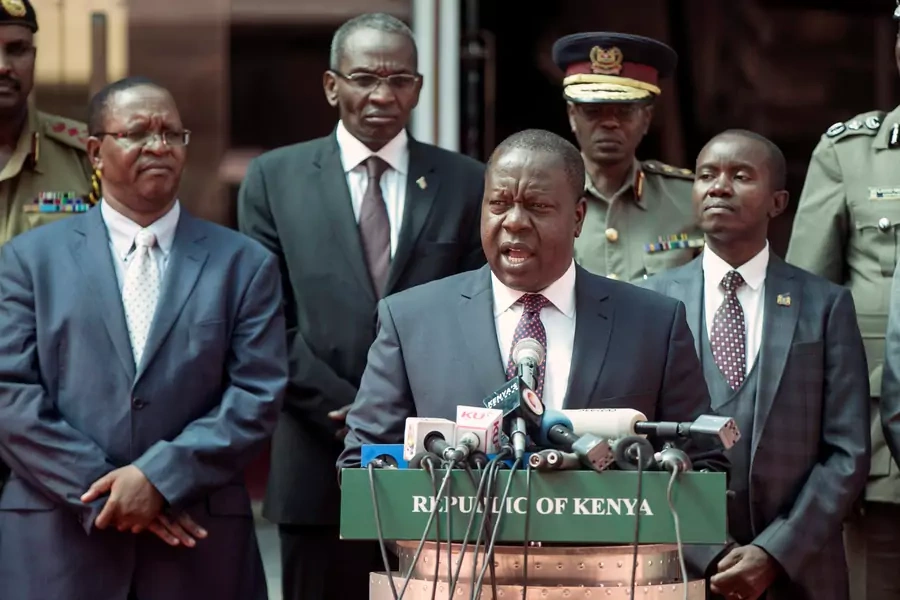Kenyatta Government Declares Odinga's NRM "Criminal"

Following the January 30 “inauguration” of Raila Odinga as an alternative president of Kenya, the Interior Ministry declared that his National Resistance Movement (NRM) is an “organized criminal group” under the Prevention of Organized Crimes Act. Thus far, however, no arrests have been reported. The NRM is an offshoot of Odinga’s broader political coalition, the National Super Alliance (NASA). NASA created the NRM as its resistance wing, according to Kenyan media.
The Kenyatta administration had sought to prevent Raila Odinga’s “inauguration,” and when it ultimately took place, to minimize media coverage of it, including a live television blackout. President Kenyatta’s office earlier had said that any “actions” (a reference to Odinga’s) would be subject to the law. In December, the attorney general said that if Odinga declared himself president, he would be committing high treason, punishable by death. In an interview with the Voice of America in early January, Odinga raised the possibility that he would establish an alternative government, either in Kenya or abroad.
More on:
The current political crisis is the outcome of two disputed elections and associated judicial processes. The crisis resulted in a second term for Uhuru Kenyatta as president of Kenya. NASA refuses to accept this outcome and maintains that Odinga was the genuine winner of the original presidential elections, and therefore the Kenyatta presidency is illegitimate.
Personal rivalry between the Kenyatta and Odinga families dates back to Kenya’s independence. It both feeds on and promotes ethnic and class conflict. Kenyatta is Kikuyu, probably the country’s largest and most powerful ethnic group, and the face of big business; Odinga is a Luo, a traditional Kikuyu rival ethnic group, and the voice of the marginalized, especially in the Nairobi slums.
A concern is that the 2007 scenario may repeat itself, during which a disputed presidential election morphed into an ethnic conflict that left over one thousand dead and up to half a million internally displaced. A power sharing settlement was cobbled together by the UN secretary general that led to a new constitution designed, among other things, to decentralize governance and mitigate Kenya’s winner-take-all political culture. The new constitution appeared to be working. Hence, in part, the disappointment among friends of Kenya over the current crisis.
At this stage, the current crisis could be dissipated by an agreement between Kenyatta and Odinga. Both are “big men,” rich, and beneficiaries of the status quo. Over the years they have been in social as well as political contact. However, mismanagement of the crisis could have dire consequences. Negative scenarios might include mob violence by Odinga’s supporters or government arrests of Odinga’s associates, or even perhaps of the man himself, as the attorney general has threatened. These actions would inflame Odinga’s followers, with likely deleterious consequences.
More on:
 Online Store
Online Store